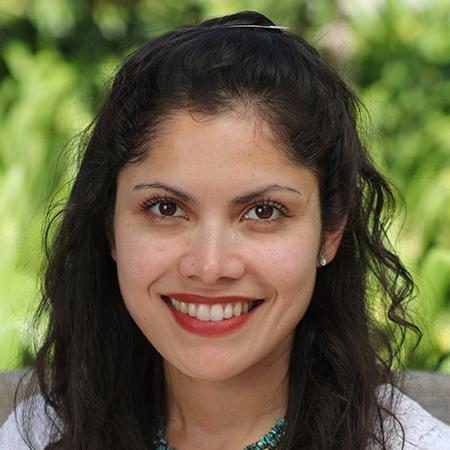
Jesica Fernández
Jesica Siham Fernández is the author of the award winning book, Growing Up Latinx: Coming of Age in a Time of Contested Citizenship (New York University Press). As a community-engaged researcher and transdisciplinary scholar, Jesica's book explores the lives of Latinx youth as they grapple with their social and political identities from an early age in an increasingly hostile political climate that shapes their family, school, family, community experiences of belonging. With a compassionate eye, she shows how Latinx youth strive to identify, and ultimately redefine, what it means to come of age―and fight for their rights and humanity―in a country that does not always recognize them. Growing Up Latinx invites readers to witness the inspiring power of youth as they develop and make their political voices heard, thereby expanding meanings and representations of citizenship in the United States.
Trained as a social-community psychologist, Jesica completed her PhD in social psychology with an emphasis in Latin American and Latino studies from the University of California, Santa Cruz. Jesica’s scholarship is grounded in a decolonial praxis that strives to de-link knowledge, theory and practice away from Western/Eurocentric perspectives that often overlook local, relational and pluriversal Indigenous and Majority World epistemologies of and for liberation. Through a community-based participatory action research (PAR) guided in Third World feminisms, Critical Race and LatCrit theories, and decolonial methodologies, such as testimonio―Jesica engages with and support communities their agency and power to identify systemic problems affecting their lives, determine actions to address these conditions, and facilitate structural systemic change. In this way, Jesica collaborates with student activists on-campus, youth in education settings and community organizing spaces, as well as with Latinx immigrant women in the Greater Silicon Valley. Broadly, Jesica’s research centers on supporting the development of what she conceptualized as sociopolitical citizenship and sociopolitical wellbeing for collective thriving guided toward liberation and actualizing transformative justice. Together, these intentions, values, orientations, and experiences form the foundation for her research within the contexts of activism, organizing, and movement building spaces that leverage community-engaged participatory action research collaborations to cultivate change.
Jesica's scholarship has been featured in top-tier psychology journals, such as the American Journal of Community Psychology, Review of General Psychology and the Journal of Social Issues. Additionally, she has published in multidisciplinary journals such as Latino Studies, Frontiers: A Journal of Women Studies, and Qualitative Inquiry. In addition to her numerous journal publications, she has contributed several chapters to edited book volumes in the area of critical youth studies, as well as the discipline of liberation psychology. Jesica’s ongoing scholarship contributes to the growth of critical community psychology through the transnational project on the Roots & Routes of Decolonial Discourse in Community Psychology. Some of Jesica’s research has been featured in local news media, such as the Madres Emprendedoras, as well as other public outlets among them the KQED Mind/Shift Podcast, and the Center of Arts & Humanities Blog.
Jesica’s participatory action research collaborations with college students through the Sociopolitical Citizenship PAR Collective, and young people via Youth for Justice Project affiliated with the Environmental Justice & The Common Good Initiative at SCU, demonstrate her activists-scholarship, and teacher-scholar orientation. She approaches the classroom with humility and radical hope, and a praxis of/for and toward decolonial/decolonizing liberation and a spiritual activism that strives to cultivate critically compassionate learning communities in the classroom space for critical reflexivity and relational dialogues that can direct groups toward re/humanizing encounters/connections, and radical imagination/dreaming toward action and justice. In the words of bell hooks:
“The classroom remains the most radical space of possibility in the academy. … Urging all of us to open our minds and hearts so that we can know beyond the boundaries of what is acceptable, so that we can think and rethink, so that we can create new visions. I celebrate teaching that enables transgressions―a movement against and beyond boundaries. It is that movement which makes education the practice of freedom.” - Teaching to Transgress: Education as the Practice of Freedom, 1994, p. 12
In recognition of her teaching and pedagogy in 2018, Jesica was awarded the Dr. John B. Drahmann Advising Award by the College of Arts & Sciences for "having established among colleagues and students a well-deserved reputation for extraordinary dedication to student welfare through wise, informed, effective, and caring counsel, and having demonstrated the ability to motivate other teachers and learners." Her pedagogy is deeply interconnected with her scholarly activism, and the opportunities she fosters to support students as sociopolitical citizens, who are compassionate, conscientious, competent and committed to fostering a more environmentally just and sustainable world where we all can thrive.